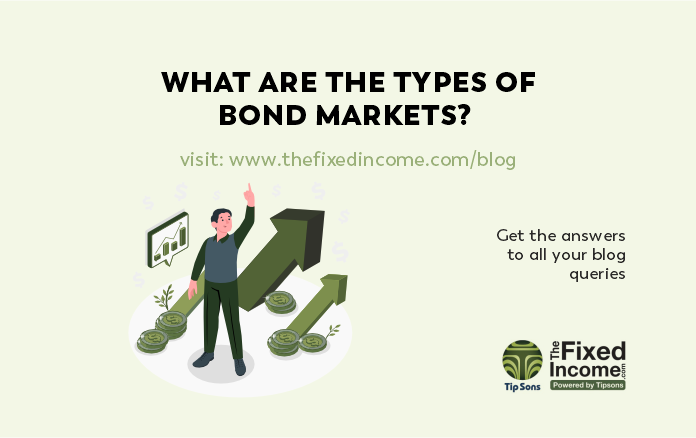Bonds are fixed-income securities that represent a debt made by an investor to a borrower. Entities issue bonds to raise money from investors for a predetermined period of time. The bond’s issuer guarantees to pay a certain rate of interest for the duration of the bond as well as the bond’s face value or principal upon maturity. Governments, businesses, towns, and other sovereign entities frequently issue bonds. Like securities, bonds may be exchanged.
Bond market refers to the market for trading debt securities such as corporate, government, and tax-free bonds. Bond markets are better appropriate for investors with lower risk tolerance since they tend to be less volatile than stock markets. Bond market investments are an effective strategy to diversify your portfolio. The Indian bond market has expanded dramatically since liberalisation. The Indian bond market has seen significant inflows of foreign money over the last few decades due to the fact that many international investors keep a part of fixed-income instruments in their portfolios. A bond market’s main function is to make it easier for the government and big private companies to acquire long-term finance.
Ways to Invest in Bond Market
There are two ways one can invest in the bond market that are discussed below:
- The first option is to maintain the bonds until they mature and start earning interest. Bond interest is normally paid twice annually.
- Selling bonds for more than you paid for them is the second way to profit from bonds.
Types of Bond Market
-
Government Bonds Market
The central government of the country also raises money by issuing bonds on the government bond market. Treasury Market is another name for it. These fixed-income securities are issued by the nation’s central government and have a set face value, maturity date, and compound interest on all interest payments. This security is very appealing to investors because they have faith in the government to keep it safe and secure. Additionally, the interest rates and payment schedule are unchanging.
TIPS (Treasury Inflation-Protected Securities) are a form of government bond that have a direct correlation to the level of inflation in the nation’s economy. Because it offers real interest rates (nominal interest rate minus inflation rate), this category of a government bond is highly well-liked.
-
Emerging Countries Bonds Market
Emerging countries are rising nations and will continue to be the focus of investment from industrialized nations, pension funds, and investment organizations. It is because these nations often have higher interest rates than other nations. Therefore, capital from industrialized countries make their way to rising countries in order to achieve or obtain larger returns. Government or business bonds may also be included in this as Emerging Economies corporations or nations frequently issue these bonds. Although these bonds provide better yields, they also come with political and geographic concerns that are exclusive to the country.
-
Corporate Bonds Market
Corporate bonds are often referred to in this market when they are issued by any private or public corporation. The term “Corporate Bonds Market” is used to describe such a market where the regular transaction takes place. Convertible bonds, which may thereafter be converted into equity shares, can also be issued by public firms. These Bonds, which will have a minimum maturity of 1 year, are a long-term source of funding for the firms.
Investment bonds and junk bonds are the two categories of corporate bonds. While junk bonds are more speculative in nature and more hazardous, investment bonds are steady and less risky.
-
Municipal Bonds Market
Municipal bonds are issued at a level below the federal government, such as the state, city, or district. The issuing by autonomous or governmental organizations occurs in this market at a significantly lower level. Even if the quantum is lower than the market for government bonds, most investors still like it because of the money’s safety and security. Governmental organizations utilize the money they raise in this market to support initiatives and meet operating expenses.
-
Mortgage-Backed Bonds Market
These bonds are often issued by banks and other financial institutions. The Banks or Financial Institutions transfer or share the risk associated with the mortgage loans with the aid of this mortgage-backed security. These mortgage debts are bundled together and made into securities in order to issue these bonds. Although they are very hazardous, these offer consistent interest payments. The Mortgage-Backed Bonds Market refers to the market where mortgage-backed securities are traded.
Summing Up
For both bond issuers and investors, the bond market is a crucial financial market venue. It has a system in place for giving investors set returns. It serves as a source of financing for businesses and the government that is comparably less expensive than other sources.
























